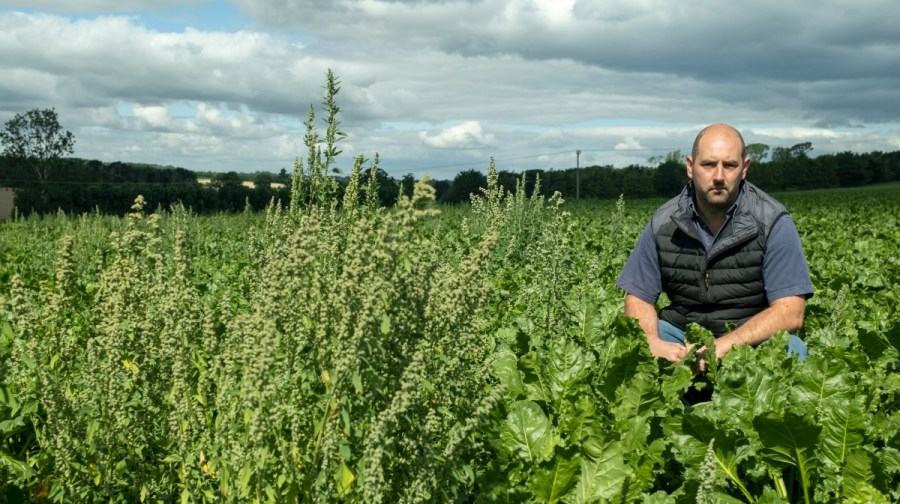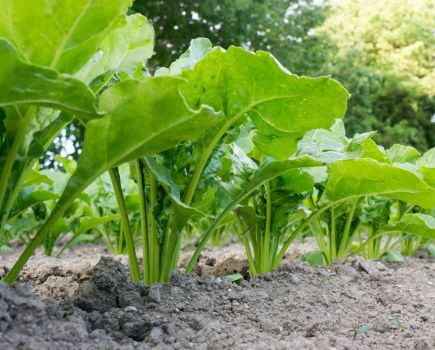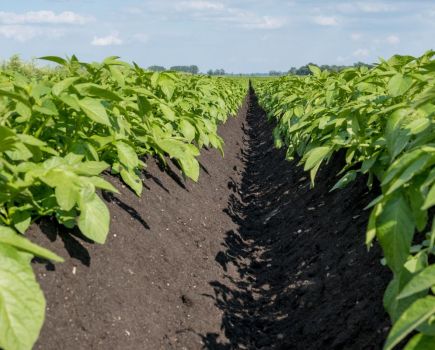Two years of trials have persuaded a Suffolk farm manager that the Conviso Smart system has a fit on his farm. CPM finds out why.
Our problem weed is fat-hen and it’s difficult to control.
By Lucy de la Pasture
The introduction of ALS herbicide resistant sugar beet has had its critics and Suffolk farm manager for Geo E. Gittus & Sons, Stephen Brummit, was one of those with reservations, he admits. Now in his third year with the Conviso Smart sugar beet system it’s fair to say that Steven’s opinion has changed.
Initially he was approached by KWS to sow 10ha of a Conviso variety as part of a network of four demonstration growers – one for each factory area. Stephen says it was an opportunity to test the new system in a few fields with a high weed burden.
“I was sceptical,” he says. “The claims being made as to its potential looked to be a little too good to believe and it seemed expensive.”
For some growers, the Conviso Smart system offers a solution to a non-existent problem. Either they don’t have a weed beet infestation in need of taming, or the weed control being achieved is already acceptable.
“I can understand why some haven’t taken a closer look,” he says. But his own experience during the past two seasons has changed my mind about the usefulness of the system, to the extent that nearly a third of his 90ha of sugar beet is now in Smart varieties.
“At almost one-third of our crop area, it provides a strategic option. The better weed control and the management flexibility it offers are a big part of the appeal for me. If we had outlying land, the time and money to be saved with fewer spray passes would be equally important.”
Were it not for COVID and the enforced lockdowns of the past few years, KWS would have invited growers from across the factory areas to visit the demonstration crops. Unfortunately for those keen to hear first-hand what the combination of ALS-tolerant varieties and its dedicated herbicide, Conviso One (foramsulforon+ thiencarbazone-methyl) have to offer, this wasn’t possible. So the 2022 season is likely to be the first opportunity many will have to see up close what the system can deliver.
The management of the demonstration crops is left in the main to the growers, but with KWS advising a herbicide strategy. The intention is to tease out the performance of the Conviso One herbicide in comparison with the farm standard, and to identify a programme that delivers the best all-round weed control.
“It’s disappointing that growers haven’t had the opportunity to see the system for themselves or to hear about my experience. For me, it’s been a case of ‘seeing is believing’ and I’d like to think that had more growers seen it in person, it may have overcome some of the cynicism I’ve heard directed at the technology,” says Stephen.
“We like what we’ve seen so far and have decided to give it a proper go – at our own cost,” he says. This spring, 21ha of a Conviso Smart variety has been planted on the farm near Bury St. Edmunds, in addition to the 10ha he’s growing for KWS. The reason for this is not because of weed beet but for the better weed control Stephen’s found the system offers on the farm.
In 2020, the Conviso Smart crops yielded close to that achieved by the classic varieties. In 2021 the yield gap widened from less than 5t/ha (adjusted) to nearly to 10t/ha (adjusted), but there’s perhaps a good explanation.
“Last year, and at KWS’s suggestion, we under-sowed the Conviso Smart crop with spring barley as part of a plan to reduce the potential incidence of virus yellows in the beet. As it was, we didn’t have the virus pressure to test the theory, but it highlighted other issues. The barley established a little too well and this may have been to the detriment of the beet crop. This aside, the Conviso Smart yields have been within an acceptable range.”
Yields are only one half of the equation – the seed and herbicide costs are more than competitive while the weed control is often far superior, he adds.
“Our problem weed is fat-hen. We have a big population, especially on the lighter soils, and it’s difficult to control. Last year, for instance, the classic beet had a combined seed and herbicide cost of £525/ha. In comparison, the Conviso Smart crop had a combined cost of £450/ha,” he says.
“We need the classic beet to yield roughly 3.5t/ha more than Conviso Smart to cover the higher herbicide cost. But the weed control achieved is often less than seen with the Conviso One, which is typically excellent on this farm, and the fields are generally immaculate. Add in the cost of application, and the opportunity cost of not spraying elsewhere, and the benefits from the higher yield of classic beet largely vanishes,” he adds.
With 21 hectares of his own crop to manage Stephen can manage it as he wishes so could depart from the KWS protocol, but his experience of the past two years suggests this is unlikely, he says.
The herbicide combines a contact and a residual and with only one application permitted to each crop, Conditions at the time of application, along with weed growth stage, have been something he admits paying close attention too in order to reap the maximum benefits.
“Fat-hen will remain the trigger weed, as advised by KWS and Bayer, and application will continue to be at four-true leaves, also as advised. This has worked well for us, so far.
“Initially I had concerns about a lack of soil moisture affecting the performance of the residual component of the herbicide, but these have proved to be unfounded and it’s delivered lasting control.
“The contact performance is exceptional,” he says. “Tramline trials over the past two years have shown me there’s no need to bolster control with either metamitron, phenmedipham or ethofumesate.”
Stephen admits that realising the potential of the Conviso One herbicide has taken time, not least because he was sceptical that it’d be possible to achieve the desired weed control with only a single spray.
“In 2020 we trialled Conviso One, with and without an oil. It made no difference to performance. Last year we adapted the programme to include a pre-emergence spray of Goltix 70SC (metamitron), and it proved unnecessary. This year, it will just be Conviso One.
“To go from a three- to four-spray strategy just a few years ago, to needing only a single spray is hard to believe, but it’s the case,” says Stephen.
Application timing is more flexible than with classic herbicides and this too has come to be appreciated.
“The sprayer workload is often intense because the cost of a machine makes it so. The classic beet will likely receive three sprays and their timing will need to be managed carefully to avoid harming the crop. In contrast, the Conviso Smart crop will receive only a single spray and it can be at any time of the day. If it’s a decent spraying day and the leaf is dry, we get on with it.”
Central to this new approach is the weed control in dry soil conditions. “In 2020 it was a dry year, as was the start to 2021, and Conviso One delivered better weed control than the farm standard. For me, this is a compelling proposition,” he says.
Variety comparison
This year’s KWS demonstration crop will be Smart Rixta KWS alongside three candidate Conviso Smart varieties including one with BCN tolerance, while the farm’s own crop will be Smart Janninka KWS. According to the 2022 BBRO/BSPB Recommended List, Smart Rixta KWS has a mean yield of 92.2% of controls while Smart Janninka KWS has a mean yield of 88.6% of controls when using classic herbicides – as per the RL protocol.
The classic varieties will be BTS1915 and Kortessa KWS, both chosen for their low bolting scores. With mean yields of 107.3% and 99.9% of controls respectively, these varieties may appear to have a significant advantage over the Conviso Smart alternatives. Real-world yields and those seen in trials, however, are rarely the same.
“Based on my experience so far, I expect the Conviso Smart beet to yield between 75-80t/ha (adjusted), whereas our average for the classic beet will be closer to 80t/ha (adjusted). In this situation and on our most heavily weed infested fields, being able to save upwards of £100/ha on herbicides once application costs are included is not something to be overlooked,” says Stephen.




